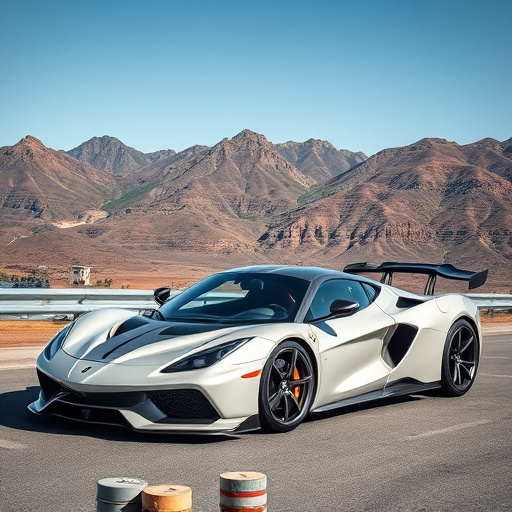Dry Filter vs Oiled Filter Intakes: Cost and Efficiency Comparison
Choosing between dry filter and oiled filter intakes involves balancing upfront costs, longevity, en…….
In the realm of automotive engineering, the debate between dry and oiled air intake systems has sparked intense discussions among enthusiasts, mechanics, and manufacturers alike. Both approaches offer unique advantages and solutions to optimize engine performance, fuel efficiency, and environmental impact. This comprehensive article aims to dissect the intricate differences, applications, and implications of dry and oiled filter intakes, providing valuable insights for industry professionals and car enthusiasts. By exploring various facets, from technology and economics to global trends and future prospects, we will uncover the significance of these systems in shaping modern automotive design.
At its core, the distinction between dry and oiled air intake filters revolves around the presence or absence of a lubricating oil within the filter system. This seemingly simple difference has profound implications for engine performance, maintenance requirements, and overall efficiency.
The choice between dry and oiled intakes depends on various factors, including vehicle type, intended use, and the level of filtration desired. Both systems play a crucial role in ensuring engine longevity and optimal performance while meeting environmental standards.
The adoption of dry and oiled filter intake systems is not confined to specific regions or markets; it has indeed become a global phenomenon, albeit with varying trends and preferences.
The economic implications of dry and oiled filter intakes extend beyond manufacturing costs, influencing market dynamics, consumer choices, and global supply chains.
The ongoing evolution of filtration technology has led to numerous advancements in both dry and oiled filter intake systems, pushing the boundaries of engine performance and fuel efficiency.
As environmental concerns continue to shape automotive industry trends, dry and oiled filter intake systems play a crucial role in reducing the ecological footprint of vehicles.
The choice between dry and oiled filter intakes extends beyond general market trends; it heavily depends on the intended application and vehicle requirements.
The automotive industry’s continuous pursuit of innovation ensures that dry and oiled filter intake systems will evolve further, catering to emerging trends and consumer demands.
The automotive industry’s diverse range of vehicles and applications necessitates a wide array of intake system solutions, with dry and oiled filter intakes playing pivotal roles in engine performance, fuel efficiency, and environmental sustainability. As technology advances and consumer preferences evolve, these two distinct filtration approaches will continue to shape the future of vehicle design and engineering.
By understanding the unique advantages and considerations of dry and oiled filter intake systems, automotive manufacturers, engineers, and consumers can make informed decisions, contributing to a more efficient, sustainable, and exciting automotive landscape.

Choosing between dry filter and oiled filter intakes involves balancing upfront costs, longevity, en…….

Choosing between dry and oiled filter intakes is crucial for maximizing engine performance, with sig…….

Airflow restriction in engine intake systems impacts performance and efficiency, with dry and oiled…….

Choosing between dry and oiled filter intakes depends on local dust levels and priorities: dry filte…….

In automotive maintenance, dry filters are lightweight, cost-effective, and require less frequent re…….

Airflow restriction differences between dry filter and oiled filter intakes significantly impact eng…….

When choosing between dry and oiled filter intakes for cars, consider reusability, performance, and…….

Reusability in filtration systems is key to sustainability, with dry filters offering superior eco-f…….

In automotive intake systems, dry filters and oiled filters cater to distinct needs. Dry filters, du…….

Selecting between dry and oiled filter intakes depends on application needs. Dry filters, using mate…….